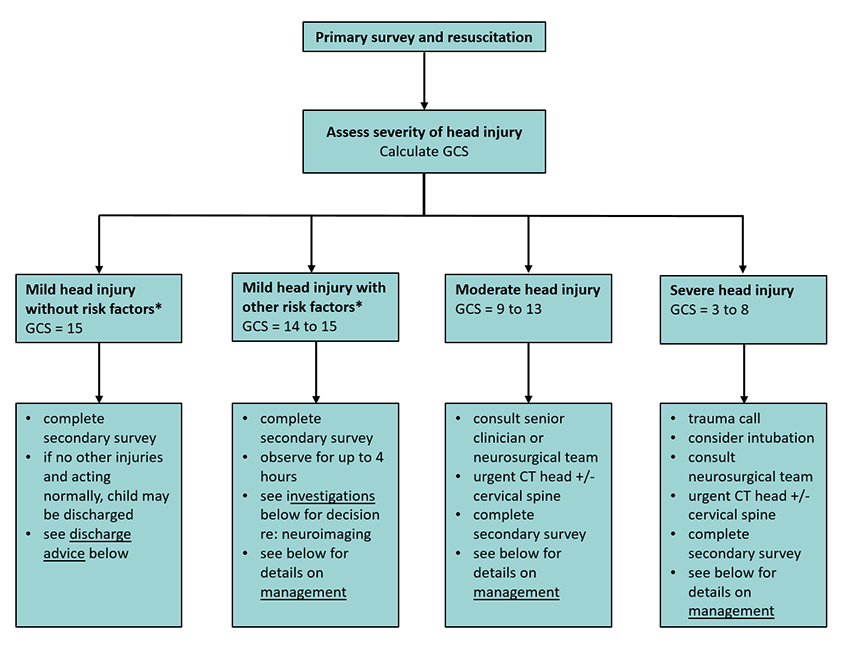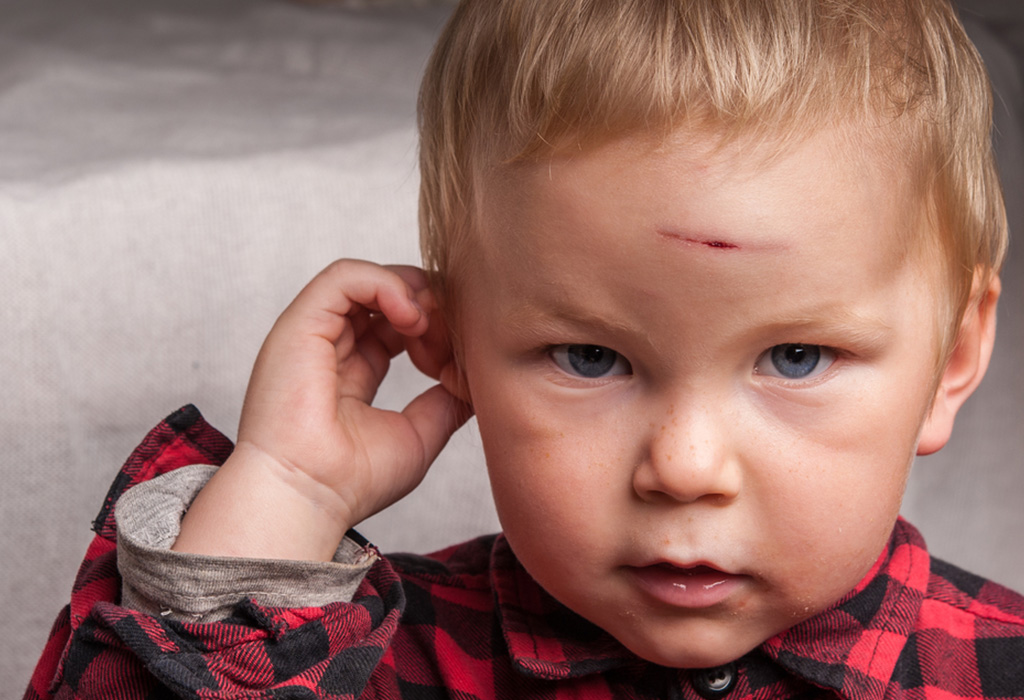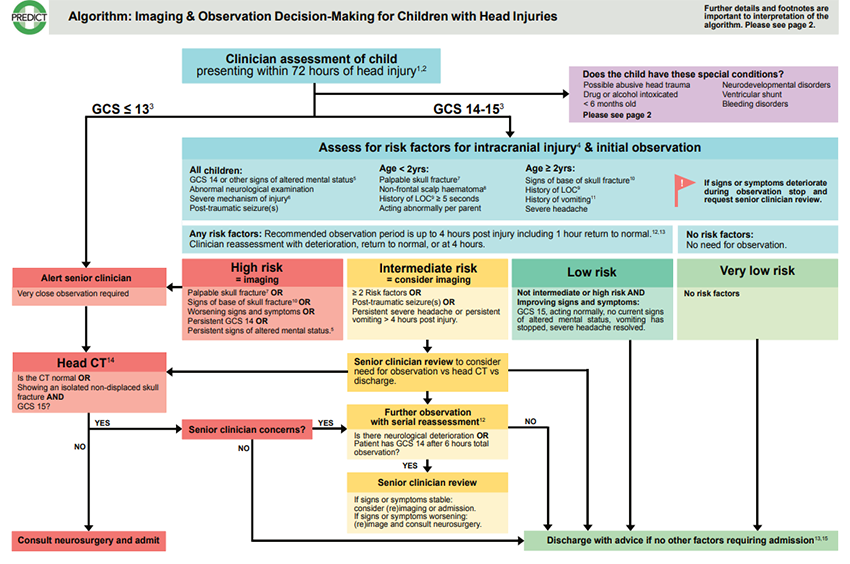how to check for head injury in infant
The following are the most common symptoms of a head injury. Constant and recurring headaches are the result of sensory over-stimulation common to brain injuries.

Spotting Concussions In Babies And Toddlers Unc Health Talk
Blood at the point of injury or elsewhere on the face or head.

. Other ways to care for your injured little one during the watch and wait period. A physical description of your childs head injury Is there bruising swelling a dent in the skull discoloration around the eyes or behind the ear fluid leaking from the nose or bleeding from the ear. If the vomiting contin-ues go back to your doctor.
The child may have varying degrees of symptoms associated with the severity of the head injury. Small superficial shallow cut in the scalp. Monitor your baby while theyre sleeping during naps and.
If unresponsive or worried call 999112. A change in behaviour like being more irritable or losing interest in things around you especially in children under 5 been crying more than usual especially in babies and young children problems with memory. Evidence says that most head injuries in infants and toddlers occur due to falls at home 1 2.
Baby minor head injury. Clean and bandage any minor cuts or abrasions to the skin. A history or physical signs of blunt trauma to the scalp skull or brain in an infant or child who is alert or awakens to voice or light touch.
Some of the signs of concussion or serious head injury include. Other common causes of head injury in young children are from car crashes or during playground activities 2. Baby severe head injury.
Recognizing Head Injuries in Infants and Children Florida Statute 94317298 states that the Criminal Justice Standards and Training Commission will establish instruction for law enforcement officers on the topic of recognition of and responses to head trauma and brain injury in a child under 6 years of age to aid an officer in the detection of head trauma and brain injury. They can even show very minor injuries that may not need treatment. This measures a childs brain processing.
Minor head injury is an extremely common problem experienced by children everywhere and seen by physicians everywhere. A small proportion of patients who appear to be neurologically normal will go on to have intracranial bleeding that will typically be treated with neurosurgery but reliably. Seek immediate medical attention if after a knock to the head you notice any of these symptoms in either you or your child.
Been drinking alcohol or taking drugs just before the injury. Drowsiness Immediately after the head injury your child may be sleepy. An uninjured brain filters out unnecessary sensory information but a brain that sustained a blow to a major sensory lobe has.
Check for changesconsistency in the size of your babys pupils. Raised swollen area from a bump or a bruise. Be sure to check the whole.
Infants are usually unable to complain about headache or other symptoms. This is to find out if there is a problem with brain function after a head injury. If you see that your child has unequal or larger than normal pupils the small black spots in the eyes after a head injury this could indicate swelling around the brain and is a medical emergency.
CT scans can show brain injury and may be helpful in deciding the seriousness of the injury. You should always monitor any changes in breathing after a head injury or any major trauma. Theyll also check to see how the nerves are working.
In the next few hours and days after a possible head injury keep an eye out for other abnormal physical symptoms including headaches loss. Their breathing may even stop for ten to twenty seconds at a time. Babies have the least communication ability and the most sensitive brains.
When the bleeding is in just one area it causes bruising and swelling hematoma. Assess their level of response with AVPU scale. Your baby or child may have more rapid or shallow breathing than normal.
Hold an ice pack against their head. If your infant falls out of bed or experiences a head injury check for these symptoms. What happens if the CT scan or head x-ray shows a problem.
Check your child every hour for the first 4 hours to ensure that. Ann Emerg Med. Doctors often do a CAT scan of the head if the injury is more serious.
12 Irregular Breathing. The victim described the pain of a traumatic brain injury as someone jabbing an ice pick into your skull 247. A minor head injury in an infant is described by the American Academy of Pediatrics as the following.
Try not to move in case of spinal injury. E is for exposure. Head X-rays can show fractures bone breaks of the skull but do not show if there is a brain injury.
Monitor breathing prepare to do CPR if necessary. Children playing organized sports will usually have an ImPACT test. Brain injuries in this age group can also have non-traumatic causes such as a stroke 3 4 or meningitis.
Sensitivity to noise and light. There is no need to keep your child awake if they want to sleep. Brain injury can occur in the very.
Your child appears to be in pain excessive fussing crying irritability. More tests will probably be. It can be hard to check symptoms of a concussion in a baby.
Doctors diagnose head injuries by asking questions about how the injury happened and doing a careful exam of the head. Your child may vomit two or three times in the first hour or two after the injury. Head trauma from play or sports is a common concern for parents but rarely does a bump on the head result in serious injury.
In head injuries this is important because a child may not be able to tell you about other sites of injury either because they are too young or because their level of consciousness has deteriorated. Only move them if they are in danger. To identify symptoms of a head injury first check for any physical signs such as bleeding from the head nose or ears.
You may also see your baby gasping for air. A headache that does not go away with painkillers. Any sign or indication of head injury in a baby 12 months or younger.
Apply ice as tolerated by your baby. The symptoms of a mild head injury may include. The forehead and scalp have an abundant blood supply and injury to these areas often results in bleeding under the skin.
Signs of a serious head injury. Most children with a mild brain injury dont need medical tests. Children will usually have this test at the beginning of the sports season and then again should they have any head injury.
Unconsciousness either briefly or for a longer period of time.

Pin On Good To Know Infographics From The Nih And Beyond

10 Signs Of Concussion In Babies Causes And Treatment Toddler Concussion Toddler Head Injury Concussions

Clinical Practice Guidelines Head Injury

Reasons Kids Go To The School Nurse School Nurse Office Nursing School Nurse Office

Concussion Or Head Injury Babycenter Toddler Head Injury Toddler Fall Baby Center

Pediatric Concussion Clinic Children S Minnesota Concussions Brain Injury Awareness Concussions Recovery

Baby Health Momjunction A Community For Moms Toddler Head Injury Head Injury Baby Health

Head Injury In Children Types Symptoms Treatment

My Baby Bumped Her Head When To Worry Baby Bumps Baby Safety Baby Proofing

Kids And Concussions The Effects Of Head Injuries In Young Athletes Concussions Recovery Concussions Head Injury

A Bump On The Head Parent Child Relationship Pediatrics Head Injury

Head Injuries In Children Snotty Noses Head Injury In Children Head Injury Kids Health

Clinical Practice Guidelines Head Injury
/signs-concussion-toddler-5186789-FINAL-48de7ad7674542669e300b40eb20d05b.jpg)
Signs Of A Concussion In Toddlers

6 Stages Of Concussion Recovery With Images Concussions Recovery Traumatic Brain Injury Concussions

Baby Head Shaking Why Do They Do This Mom Loves Best Baby Head Baby Sleep Problems Baby

My Child Bumped His Head When Should I Worry Toddler Head Injury Children Hitting Toddler Concussion

